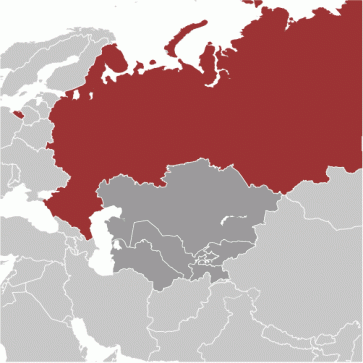
Event Recap: “Russia’s Election Countdown”
On June 9, 2016, the Atlantic Council presented “Russia’s Election Countdown” in view of the upcoming September 18 parliamentary elections. The event was hosted by Mr. Steven Lee Myers of the New York Times. The panelists included Mr. Vladimir Kara-Murza, Mr. Pavel Khodorkovsky, Dr. Miriam Lanskoy and Ambassador John Herbst.
Everyone on the stage knew full well that this election would not be fair or free. In fact, more restrictions have been put in place by the Putin regime since the last parliamentary elections in 2011. These include the prohibition of electoral blocs, media credentials not guaranteeing access to a ballot count and observers from the Council of Europe not being exactly welcome to the proceedings. As of April, Putin also created a new National Guard, meant to ‘fight terrorism’, really a preemptive measure against demonstrations like the ones violently put down after the 2011 legislative and 2012 presidential elections during which hundreds of Russians united to protest against fraud. Fourteen million votes were estimated to have been stolen in favor of Putin’s party, United Russia, in 2012.
However, the People’ Freedom Party, United Democratic Party (“Yabloko”) and other parties decided against boycotting the 2016 election. As Kara-Murza* said, “Boycotts don’t achieve anything. There are people in Russia who want democracy, freedom from corrupt officials, independent courts, honest elections. A country with a strong economy and one that is not treated like a pariah in the international arena. We owe these people a political voice.”
Numerous topics and anecdotes were told. These are important excerpts:
In what way could Putin’s regime disqualify candidates?
- According to Russian law, it is possible to form regional groups when collecting votes. To show their disagreement with Russian annexation of Crimea, the People’ Freedom Party and Yabloko were going to lump Sevastopol and Crimea into neighboring Krasnodar Krai. However, this past week a new law was signed in which explicitly forbids incorporating Sevastopol and Crimea into other regions. Doing so could disqualify the parties.
- The reinstatement of single party districts, though a concession to local elites, also offers others more opportunity for participation. However, as Mr. Pavel Khodorkovsky** noted, lowering of registration requirements has a double effect. It encourages the formation of small parties which will not get enough votes to be included in the DUMA.
- Arrests and criminal charges suspend candidacies.
What can the US realistically do to support efforts during the election?
Kara-Murza bristled as he gave a response, which can be paraphrased as, “We do not need your ‘support.’ What you should do is tell the truth. I will never forget the day when hundreds of people spilled out into the cold to protest against the results of the election and the US State Department issued this statement: ‘The United States congratulates the Russian people on the completion of the Presidential elections, and looks forward to working with the President-elect after the results are certified and he is sworn in.’ Do not ‘congratulate’ the Russian people and give Putin recognition. This you shouldn’t do.”
What is the point of participating in a predetermined election?
The point is not only to give people a voice and dispel the myth that the opposition has no support, but to stay in practice so as to be competitive when the time comes to legitimately elect new leaders. The highlight of the event was Kara-Murza’s comparison of the elections with a pianist who taps out music even when he does not have a piano. Participating in the election is the only way to develop a well-trained team prepared to lead Russia in its future transition to a liberal democracy.
*Prominent oppositionist to Putin, council member of the Russian People’s Freedom Party and the pro-democracy movement, Solidarnost
** President of the Institute of Modern Russia and son of Mikhail Khodorkovsky, once the richest man in Russia turned political prisoner after open dissent again the current government





